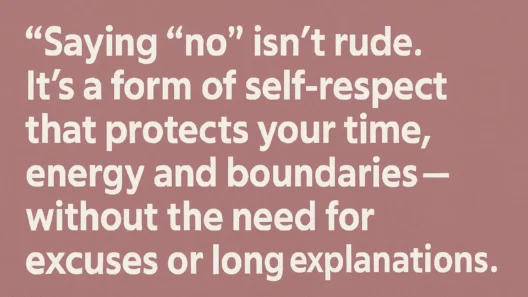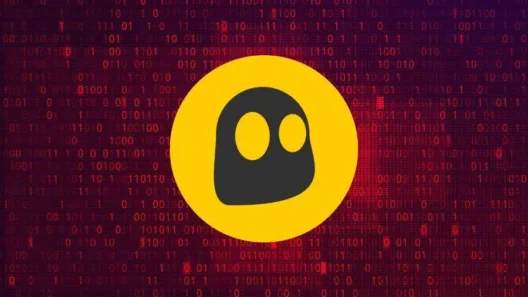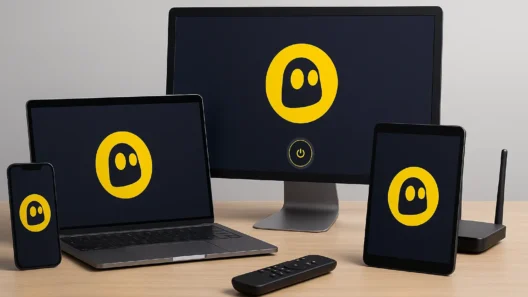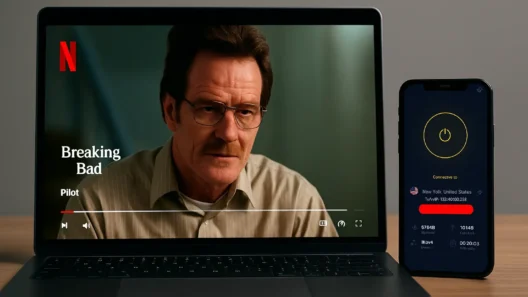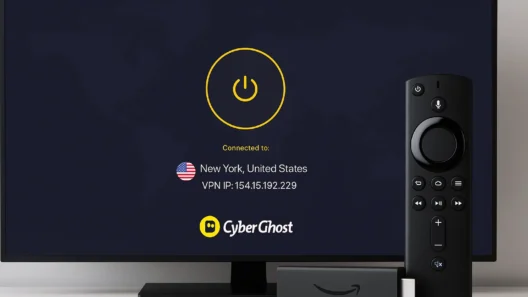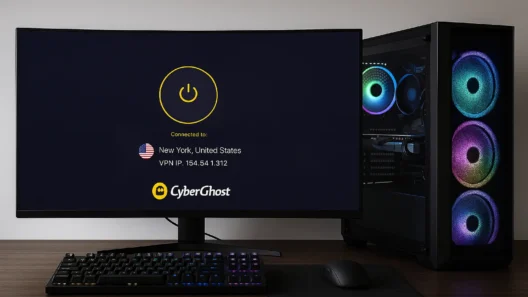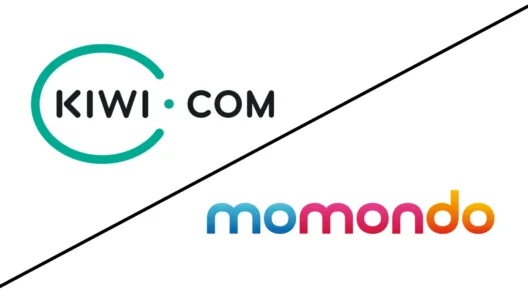I always thought I had my digital life under control. I’ve been using VPNs for years—not just for security, but for peace of mind. I follow privacy trends, read about cybersecurity, and I’ve eliminated most digital traps along the way. But something happened recently that shook me more than anything before. And it started completely innocently.
I was traveling across Europe—business meetings, a few days off in between, hotels, coworking spaces, logging in from all kinds of networks. I moved between Barcelona, Lisbon, Milan, and Hamburg. As always, I launched my VPN—reliable, trusted, with a kill switch, no-logs policy, and multihop protection. The kind of setup that’s kept me safe on public Wi-Fi and off the radar.
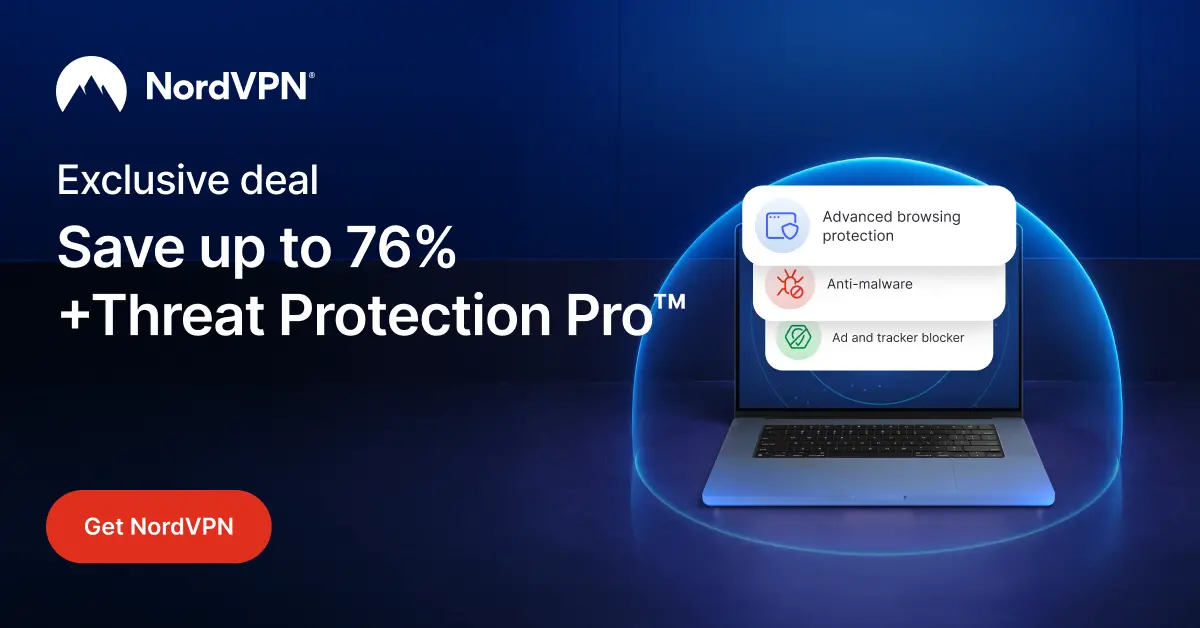
Why Traveling With a VPN Is Non-Negotiable
That evening, I was on the rooftop terrace of a hotel in Barcelona, browsing on my MacBook. I was just looking for something interesting to read—specifically about generative AI. I was connected through a VPN server in Denmark, browsing in incognito mode. And yet, the content suggestions I started getting were eerily spot-on.
One AI result referenced the exact hotel I was staying in. Another summarized ideas I had jotted down offline in my notes. And a third suggested a product I never searched for—but had casually discussed with a colleague just the day before.
When VPN Alone Isn’t Enough for Privacy
I was using VPN properly: encrypted traffic, no account sync, no cloud backups. My device was clean, free of suspicious apps. Yet the AI algorithm connected dots no service should have access to. Or at least, that’s what I thought.
I began asking uncomfortable questions. Can AI learn from data we never consciously reveal? If I’m walking around with a device connected to a network, is it possible that systems “guess” my situation from ambient metadata or standard API access?
What if it’s not about direct data leaks, but statistical interpolation based on my digital fingerprint—even with VPN running? Maybe we put too much trust in the idea that VPN = invisibility. Because in reality, there are systems that see through our habits, timings, locations, and language patterns.
AI as a Behavior Profiler, Not Just a Tool
This wasn’t the usual personalization: “You searched for this, so here’s that.” This was subtle—but freakishly accurate. The tone matched how I write. The content matched thoughts I hadn’t even typed, only contemplated. That’s a whole different game.
It’s not about cookies. It’s not even about search history. It’s about how you behave. Your digital body language. The way you type, scroll, linger, search—and what that reveals about you.
Modern AI works more like a profiler than a search engine. It doesn’t need your name. It needs patterns. Fingerprinting, language habits, mouse movements, touch gestures—they all feed the model.
How AI Might Still Track You With VPN On
Even if you’re using a VPN, other components of your digital presence might give you away. AI models can leverage metadata like your device type, language preferences, time of day, and even behavioral patterns like typing cadence. It’s not about one data point—it’s about combining them to form a surprisingly accurate picture.
The takeaway? VPN helps obscure your IP, but you also need to minimize behavioral leakage. Use browser extensions to block scripts, and rethink which apps you grant permissions to.
My Personal Recommendations to Stay Private
- Always use a VPN when on unfamiliar networks. I use one with Double VPN, obfuscated servers, split tunneling, and DNS leak protection.
- Privacy-first browsers like Brave or Firefox (with uBlock Origin, Cookie AutoDelete, and NoScript). Safari’s okay with added tweaks.
- Don’t rely on incognito mode—it hides local history, not your activity from ISPs or big tech.
- Revoke system permissions—mic, camera, location. Turn them off completely and only allow temporarily.
- Separate your identities—work, personal, anonymous. Don’t auto-login everywhere. Avoid cross-linking.
- Think before you ask AI—each prompt is a datapoint. Your phrasing, logic, tone—they all shape how AI sees you.
- Disable Bluetooth and Wi-Fi when not needed. Some apps connect silently.
- Avoid clicking content that “knows you too well”—you’re training the machine.
My Top 5 VPNs (With Reasons Why I Trust Them)
- NordVPN – My go-to choice. It’s fast, rock-solid, and supports multihop, Onion-over-VPN, and custom DNS. Their threat protection even blocks malware and trackers at the network level. Plus, it works flawlessly on routers.
- ExpressVPN – The best for seamless streaming and great for travelers. Their Lightway protocol is lightning-fast, and their privacy track record is clean—backed by multiple audits.
- Surfshark – Unlimited devices is a game-changer. Also includes CleanWeb to block ads, and their Nexus feature helps with IP rotation for extra anonymity. It’s affordable yet packed with features.
- CyberGhost – Fantastic user interface and servers optimized for specific use cases (Netflix, torrents, gaming). Transparent policies and a privacy-friendly jurisdiction in Romania.
- Private Internet Access (PIA) – Highly configurable, open-source apps, and very granular control over encryption. Great for privacy geeks who want to tweak everything themselves.
| My 5 Best VPN for Travel | Offer + Discount | URL |
|---|---|---|
| NordVPN | 77% off + 3 months free | Try NordVPN |
| ExpressVPN | 73% off + 6 months free | Try ExpressVPN |
| SurfShark | 87% off + 2 months free | Try SurfShark |
| CyberGhost | 83% off + 2 months free | Try CyberGhost |
| PIA VPN | 82% off + 2 months free | Try PIA VPN |
Choosing the Right VPN Is About Trade-offs
No VPN is perfect. Some are faster, some more private, some easier to use. Think about what matters most to you: is it streaming? anonymity? multi-device use? Choose accordingly—and don’t fall for flashy ads.
AI Isn’t Evil—But It’s Not Your Friend Either
I’m not trying to sound paranoid. But if AI serves you content that feels like it’s reading your mind—and you never spoke those thoughts aloud—something’s wrong. Or at least misunderstood.
AI doesn’t need to spy. It just needs to be good at guessing. And we’ve entered the age where personalization isn’t just marketing—it’s identity modeling.
What began as book suggestions is now nearing thought prediction. We’re not at mind reading yet—but we’re dangerously close to thought anticipation.
VPNs are essential. But they’re only the beginning. Real privacy requires deeper awareness. Like how we insure our homes, cars, or health—we must start safeguarding our digital identity.
The Future of Privacy Depends on How We React Now
Will we adjust our behavior and tools, or simply trust tech companies to “do the right thing”? I hope this story gets you to question what you share, how, and with whom. Because your digital shadow is deeper than you think.
In my next story, I’ll break down the tools I’ve used to trace where AI gets its insights from, what we leak unknowingly—and how to fight back. Because this isn’t just about ads anymore.
It’s about you. And how loudly your silence speaks online.







